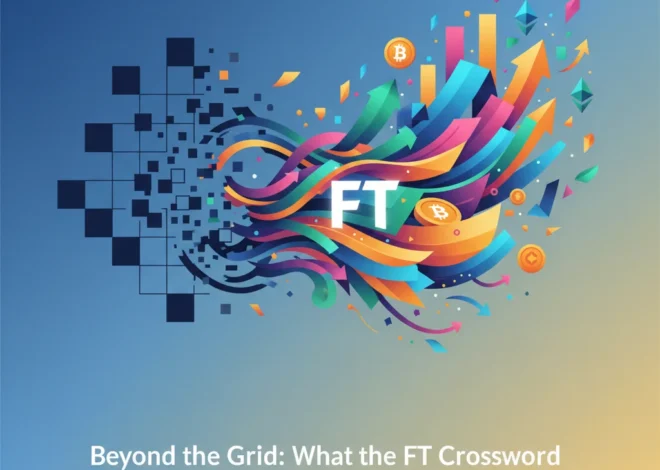
The Norman Conquest Continues: Why Archie Norman’s M&S Chairmanship Extension is a Masterclass in Corporate Revival
In the often-turbulent world of corporate leadership, stability can be the most valuable commodity. For investors and market watchers alike, the announcement that veteran retailer Archie Norman will extend his term as chairman of Marks & Spencer until 2029 is more than just a footnote in a company report; it’s a powerful statement of intent. It signals a commitment to a long-term vision, a steady hand at the tiller through uncertain economic waters, and a doubling-down on one of the most remarkable turnaround stories in recent UK corporate history.
But what does this three-year extension truly signify? For a company that was, not long ago, struggling for relevance and facing ejection from the UK’s premier stock market index, this move is pivotal. It provides the continuity needed to cement a hard-won transformation and navigate the next phase of growth. To understand the importance of Norman’s continued reign, we must first appreciate the depths from which M&S has risen and the strategic masterstrokes that engineered its comeback—a story with profound lessons for anyone interested in business strategy, finance, and long-term investing.
From National Treasure to National Concern
For decades, Marks & Spencer was more than a retailer; it was a British institution. However, by the early 2010s, the shine had worn off. The company was battling a pincer movement of problems: its clothing lines were perceived as dowdy and out of touch, its vast store estate was becoming a liability, and its food business, while respected, was failing to capitalize on its potential. The company’s supply chain was notoriously inefficient, and it was a laggard in the digital race, a critical failure in a rapidly evolving retail landscape.
This prolonged slump had tangible consequences for those involved in its investing journey. The company’s share price languished, and in 2019, M&S suffered the symbolic humiliation of being demoted from the FTSE 100 index for the first time in its history. The titan of the British high street looked tired, lost, and on a path to irrelevance. The situation demanded not just a new plan, but a fundamental cultural and operational reset.
The “Never the Same Again” Revolution
Enter Archie Norman in 2017. With a formidable reputation forged from his successful turnaround of the Asda supermarket chain in the 1990s, his arrival was a clear signal to the stock market that M&S was serious about radical change. Alongside CEO Stuart Machin, Norman initiated the “Never the Same Again” program, a brutally honest and multifaceted strategy designed to drag the company into the 21st century.
The strategy wasn’t a single silver bullet but a coordinated assault on all fronts. It involved reshaping the store portfolio, modernizing the supply chain, revitalizing the beleaguered Clothing & Home division, and, most critically, turbocharging the Food business. This wasn’t merely about cost-cutting; it was a root-and-branch reinvestment in the brand’s core strengths.
Below is a breakdown of the key pillars that have defined this successful transformation:
| Strategic Pillar | Key Initiatives and Impact |
|---|---|
| Reshaping the Store Estate | Closing underperforming legacy stores and opening modern, fit-for-purpose Foodhalls in better locations. This improved profitability and customer experience, reducing the drag of oversized, inefficient properties. |
| Food Business Overhaul | Focusing on quality, innovation, and perceived value. The £750m joint venture with Ocado in 2019 was a game-changer, finally giving M&S a credible online grocery delivery service to compete with rivals. |
| Clothing & Home Revival | Improving the buying process, reducing reliance on promotions, focusing on core “trusted value” items, and curating third-party brands like Nobody’s Child to broaden appeal without diluting the M&S identity. |
| Digital and Supply Chain Modernization | Investing heavily in technology to improve stock management and online fulfillment. The Sparks loyalty program was revamped into a digital-first platform, providing valuable data on customer behavior, mirroring strategies seen in modern financial technology. |
The Financial Payoff: From FTSE Flop to Market Darling
The results of this painful but necessary surgery have been striking. After years of decline, M&S has delivered impressive financial performance. In its most recent full-year results, the company reported a 58% surge in pre-tax profits to £716.4m, with strong growth in both its Food and Clothing & Home divisions. This robust performance led to its triumphant return to the FTSE 100 in September 2023, cementing its comeback in the eyes of the financial community.
For investors, the turnaround has been lucrative. The share price has reflected this renewed confidence, significantly outperforming many of its retail peers. This revival underscores a key lesson in economics: even the most entrenched legacy businesses can pivot and thrive with the right leadership and a willingness to make difficult, long-term decisions. The company’s journey offers a compelling case study for anyone involved in trading or analyzing corporate turnarounds.
M&S as a Bellwether for the UK Economy
The story of M&S is more than just a corporate case study; it’s a reflection of the broader UK economy. The company’s struggles and subsequent revival mirror the challenges facing the British high street and consumer sentiment. Its renewed focus on quality and value in its food offerings resonates in an era of high inflation, while the successful curation of its clothing lines shows an adept understanding of the modern, hybrid-working consumer.
Furthermore, the company’s strategic use of technology is indicative of wider trends. The partnership with Ocado and the digital transformation of its Sparks loyalty program are examples of a legacy retailer embracing the principles of fintech and data analytics to build a more resilient business model. While not yet a user, the kind of supply chain transparency that technologies like blockchain promise could be a future frontier for retailers aiming to guarantee provenance and ethical sourcing—a key concern for modern consumers. The integration of M&S Bank into its ecosystem also highlights the blurring lines between retail and banking, as brands seek to own more of the customer relationship through embedded financial technology services.
The Road to 2029: Unfinished Business
Despite the remarkable progress, the job is not yet finished. Archie Norman’s decision to stay acknowledges that the next phase of the journey is just as critical. The challenges ahead include:
- International Growth: While the UK business is on solid footing, replicating this success in international markets remains a significant and complex opportunity.
- Sustaining Momentum: The retail market is fiercely competitive. M&S must continue to innovate in both food and fashion to avoid complacency and fend off challenges from discounters and online-only players.
- Optimizing the Ocado Partnership: The joint venture has been crucial, but ensuring it remains a growth engine and operates at maximum efficiency will require constant attention and strategic alignment.
- The Future of the High Street: M&S must continue to evolve its store formats to ensure they remain relevant destinations for shoppers, seamlessly integrating the physical and digital experience.
Norman’s continued presence provides the strategic oversight needed to tackle these issues. It gives the executive team the confidence to make bold, long-term bets, knowing they have the backing of a chairman who has been instrumental in crafting the vision.
Conclusion: A Lesson in Leadership and Long-Term Vision
The extension of Archie Norman’s chairmanship at Marks & Spencer is a powerful endorsement of a turnaround strategy that has been years in the making. It is a testament to the impact that clear-sighted, courageous leadership can have on a seemingly intractable problem. For the finance community and those investing in the UK market, it provides a welcome dose of stability and a clear signal that M&S is focused on building sustainable, long-term value.
The journey from a struggling behemoth to a revitalized market leader has been arduous, but it provides an enduring lesson in corporate strategy. By confronting its weaknesses head-on, investing in its core strengths, and embracing change, Marks & Spencer has not only saved itself but has also provided a blueprint for how legacy brands can thrive in the modern economy. With Norman at the helm until 2029, the next chapter in this historic company’s story is set to be one of consolidation, growth, and continued evolution.


